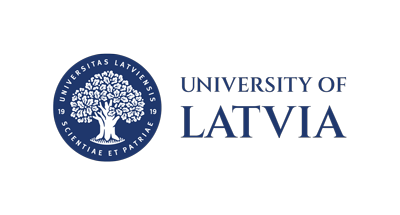Competitive Intelligence cycle in the light of web 2.0 tools
DOI:
https://doi.org/10.37380/jisib.v4i1.84Keywords:
Competitive Intelligence, Web 2.0, Intelligence CycleAbstract
We propose in this study, detailing our observations and research on the impact of the web 2.0, its associated tools, the cycle of the economic intelligence with new paradigms such as the many-to-many, new practices such as active SEO allow any individual, firm, to impact heavily on the aforementioned round, both in terms of information circulation, as data collection.References
AT Internet Institute. “Baromètre des moteurs - Avril 2009,” Avril 2009. http://www.atinternet-institute.com/fr-fr/barometre-des-moteurs/barometre-des-moteurs-avril-2009/index-1-1-6-170.html.
Charles-Victor Boutet, et Samy Ben Amor. “Vers l'active SEO 2.0.” Les cahiers du numérique 6, no. 1 (Juin 2010). DOI: https://doi.org/10.3166/lcn.6.1.179-198
Cicéron, et A. Yon. L'Orateur. Belles Lettres, 2003.
Davenport, Thomas H., et Laurence Prusak. Working Knowledge: How Organizations Manage What They Know. 2 éd. Harvard Business School Press, 2000. DOI: https://doi.org/10.1145/347634.348775
Dedijer, S. “Doing business in a changed world: The intelligence revolution and our planetary civilization.” Competitive intelligence review (1999). http://www3.interscience.wiley.com/journal/71006093/abstract. DOI: https://doi.org/10.1002/(SICI)1520-6386(199933)10:3<67::AID-CIR10>3.0.CO;2-N
Domenech, Sylvie, Manuel Marciaux, et Dominique Charnassé. “guide des bonnes pratiques en matière d'intelligence économique.” SERVICE DE COORDINATION A L’INTELLIGENCE ECONOMIQUE, Février 2009. http://www.quoniam.info/competitive-intelligence/PDF/ebooks/Guide_des_bonnes_pratiques_en_matiere_d_IE.pdf.
Dou, Henri, Eric Boutin, et Luc Quoniam. “De la création es bases de données au développement des systèmes d'intelligence pour l'entreprise.” ISDM, no. 8 (2003).
Elliott, Mark Alan. “Stigmergic Collaboration: A Theoretical Framework for Mass Collaboration.” Melbourne: University of Melbourne, 2007.
HERRING, J. “Producing CTI that meets senior management's needs and expectations.” SCIP Competitive Technical Intelligence Symposium (1997).
Heymann, Paul, Georgia Koutrika, et Hector Garcia-Molina. “Can social bookmarking improve web search?” Dans Proceedings of the international conference on Web search and web data mining, 195–206. WSDM '08. New York, NY, USA: ACM, 2008. DOI: https://doi.org/10.1145/1341531.1341558
IProspect. “Search engin user behavior study” 2006. http://www.iprospect.com/premiumPDFs/WhitePaper_2006_SearchEngineUserBehavior.pdf.
Le Moigne, Jean-Louis. La théorie du système général - théorie de la modélisation. Les Classiques du Réseau Intelligence de la Complexité, 2006. http://www.mcxapc.org/inserts/ouvrages/0609tsgtm.pdf.
Luc Quoniam, et Charles-Victor Boutet. “Web 2.0, la révolution connectique.” Document numérique 11, no. 1-2 (Décembre 2008). DOI: https://doi.org/10.3166/dn.11.1-2.133-143
Martin, Alban. L'âge de Peer: Quand le choix du gratuit rapporte gros. Village Mondial, 2006.
Mongereau, Roger. INTELLIGENCE ÉCONOMIQUE,RISQUES FINANCIERS ET STRATÉGIES DES ENTREPRISES. CONSEIL ECONOMIQUE ET SOCIAL, Septembre 26, 2006.
Ramonet, Ignacio. La Tyrannie de la communication. Gallimard, 2001.
Rasse, Paul. La rencontre des mondes : Diversité culturelle et communication. Armand Colin, 2005.
Raymond, Eric S. The Cathedral & the Bazaar. Revised. O'Reilly, 2001.
Valéry, Paul. Introduction à la méthode de Léonard de Vinci. Gallimard, 1992.
Voss, J. “Tagging, folksonomy & co-renaissance of manual indexing?” Arxiv preprint cs/0701072 (2007). http://arxiv.org/abs/cs.IR/0701072.
Downloads
Published
Issue
Section
License
Copyright (c) 2014 Journal of Intelligence Studies in Business

This work is licensed under a Creative Commons Attribution-NonCommercial-NoDerivatives 4.0 International License.
Authors who publish with this journal agree to the following terms:
- Authors retain copyright and grant the journal right of first publication with the work simultaneously licensed under a Creative Commons Attribution License that allows others to share the work with an acknowledgement of the work's authorship and initial publication in this journal.
- Authors are able to enter into separate, additional contractual arrangements for the non-exclusive distribution of the journal's published version of the work (e.g., post it to an institutional repository or publish it in a book), with an acknowledgement of its initial publication in this journal.
- Authors are permitted and encouraged to post their work online (e.g., in institutional repositories or on their website) prior to and during the submission process, as it can lead to productive exchanges, as well as earlier and greater citation of published work (See The Effect of Open Access).







